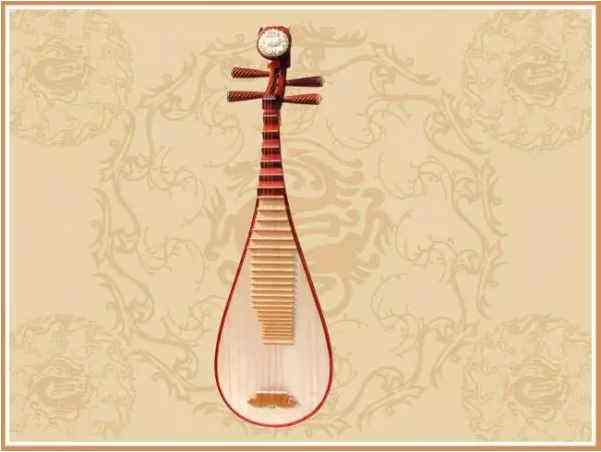Why can't I hear the sound of the pipa at the No. 1 Book Wharf in the south of the Yangtze River?
In 2006, with the approval of the State Council, Suzhou Pingtan was included in the first batch of national intangible cultural heritage list.
Changshu is known as "the first book dock in the south of the Yangtze River". Once, there was an old saying in the Pingtan circle: storytellers walking on the dock in Changshu can stay for three consecutive years. This remark not only shows the large number of bookstores in Changshu, but also shows how enthusiastic people in Changshu are to listen to books. There is even a saying that "Pingtan artists do not pass through Changshu Wharf and are not considered to be loud stalls". All of these are enough to explain the prosperity of Changshu Pingtan market and the high level of audience appreciation.

Some people have done a comparison. In the 1930s and 1940s, there were 207 bookstores in Changshu. Today, there are very few bookstores open every day in urban and rural areas, and there are no more than 10 bookstores that open irregularly on holidays in various towns and villages. In the past bookstores, when encountering good bookstores, some people entered the venue a few hours in advance to grab a seat, and some ate in the bookstore, and the matinee held the night. In today's bookstores, except for the elderly, it is difficult to see young faces. Even if the Pingtan Museum in the city center is rebuilt, it is still difficult to restore the decline of Pingtan in this city.
Pingtan is rooted in the fertile soil of Wu culture and has a large audience. It is an art that comes from the masses and goes to the masses. Sipping tea and listening to Pingtan is not only an artistic enjoyment for both the refined and the popular, but also the representative of the "slow life" in the Jiangnan area. Nowadays, with the acceleration of population flow between cities, the inheritance of Wu dialect has encountered difficulties. The new generation cannot speak or even understand Wu dialect, so it is impossible to learn, appreciate and inherit the art of Pingtan. In addition, with the acceleration of the pace of life, the "long play" of every hour is almost contradictory to the life of young people.
It seems that each person wakes up with a fan, or a pipa with three strings. If you want to conquer the audience, you must have a "hard kung fu" that combines "speaking, gimmicks, playing, singing, and acting" - this is Pingtan roots of art. In the past, every bibliography and every artist has passed the test of the fierce market competition of the "Book Dock", and those who survived in the end must be high-quality products; Talent selection is one in a thousand miles. All these situations laid the foundation for the sound development of Pingtan. On the other hand, it is not news that Pingtan majors are cold in admissions. There is no benign market to test, and there is no advantage in talent selection. Without high-quality talents and works, the foundation of Pingtan is also crumbling.
Changshu has many bookstores and listens to many books. It is the "first book dock" with a high level of appreciation. For the protection of the intangible cultural heritage of Pingtan, it can be said that it is duty-bound to keep the soul and roots of Pingtan.
We must firmly grasp the soul of Pingtan. The inheritance of Pingtan and the revival of Wu language complement each other. Pingtan can learn the art of Kunqu Opera, walk into the park, walk into the restaurant, let ordinary citizens encounter this intangible cultural heritage, and create opportunities for "Road to Fan". Pingtan should enter the community, let the elderly in the community sing, and then enter the homes of more ordinary people. Pingtan should enter the school and become a feature of more Wudi schools, just as learning English requires "grinding ears", so that children can be immersed in the art of Pingtan. Of course, Pingtan can also use emerging media platforms such as Station B, Xiaohongshu, and Douyin to expand the "fan group", just like the classic Cantonese opera "The Legend of the White Snake: Love", which can be used on the screen to conquer more with the beauty of art itself. large audience.
To firmly grasp the root of Pingtan. A good Pingtan artist, superb storytelling skills and solid cultural accomplishment are indispensable, which requires ten or more years of experience. Therefore, in the inheritance of Pingtan, you must work for a long time, and you cannot rush for a while. It is necessary to increase support for Pingtan work, introduce supporting policies, and encourage young people who like Pingtan and "true love" Pingtan to join. Strengthen exchanges between them to promote the improvement of artistic level; give enough space for innovative creations, encourage Pingtan creations to break through traditions, and create more new repertoires that can attract the younger generation.
It is hoped that the storytelling voice of "Jiangnan No. 1 Book Wharf" will become louder and louder, adding the unique charm of Jiangnan culture to this famous historical and cultural city.
 渝公网安备 50010702504639号
渝公网安备 50010702504639号